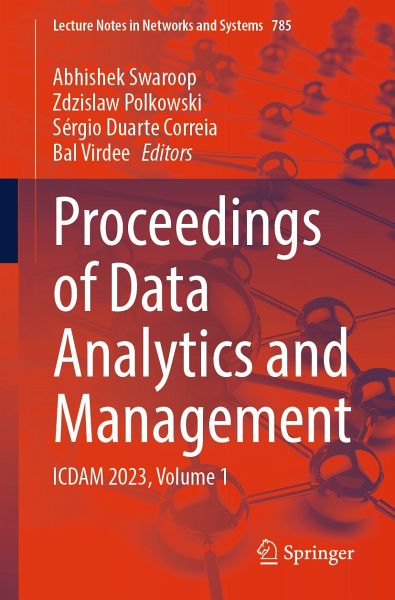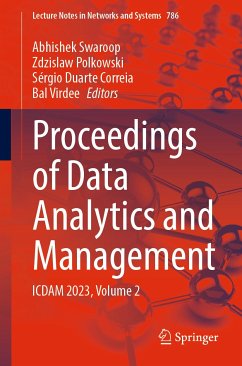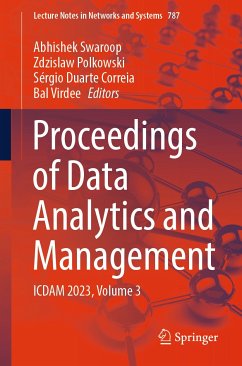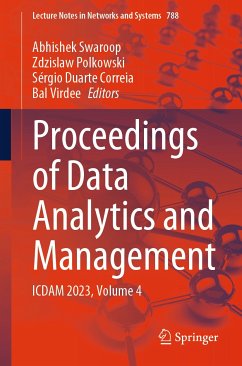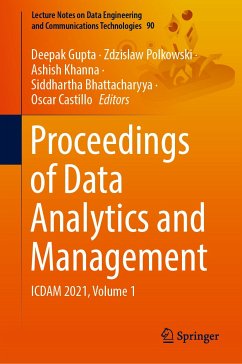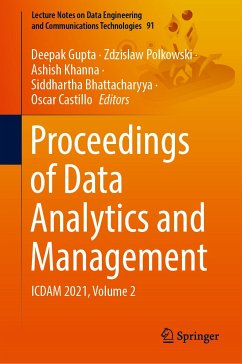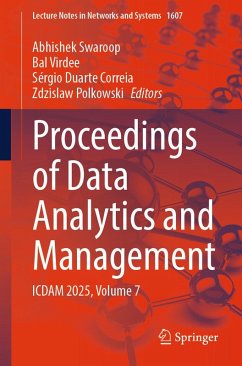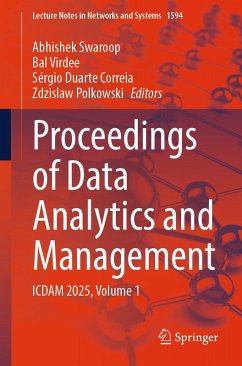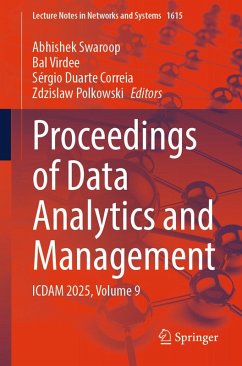Prof. (Dr.) Abhishek Swaroop completed his B.Tech. (CSE) from GBP University of Agriculture & Technology, M.Tech. from Punjabi University Patiala, and Ph.D. from NIT Kurukshetra. He has industrial experience of 8 years in organizations like Usha Rectifier Corporations and Envirotech Instruments Pvt. Limited. He has 22 years of teaching experience. He has served in reputed educational institutions such as Jaypee Institute of Information Technology, Noida, Sharda University Greater Noida, and Galgotias University Greater Noida. He has served at various administrative positions such as Head of the Department, Division Chair, NBA Coordinator for the university, and Head of training and placements. Currently, he is serving as Professor and HoD, department of Information Technology in Bhagwan Parshuram Institute of Technology, Rohini, and Delhi. He is actively engaged in research. He has more than 60 quality publications, out of which eight are SCI and 16 Scopus. Prof. (Dr.) Zdzislaw Polkowski is Adjunct Professor at Faculty of Technical Sciences at the Jan Wyzykowski University, Poland. He is also Rector's Representative for International Cooperation and Erasmus Program and Former Dean of the Technical Sciences Faculty during the period of 2009-2012 His area of research includes management information systems, business informatics, IT in business and administration, IT security, small medium enterprises, CC, IoT, big data, business intelligence, and block chain. He has published around 60 research articles. He has served the research community in the capacity of Author, Professor, Reviewer, Keynote Speaker, and Co-editor. He has attended several international conferences in the various parts of the world. He is also playing the role of Principal Investigator. Prof. Sérgio Correia received his Diploma in Electrical and Computer Engineering from the University of Coimbra, Portugal, in 2000, the master's degree in Industrial Control and Maintenance Systems from Beira Interior University, Covilhã, Portugal, in 2010, and the Ph.D. in Electrical and Computer Engineering from the University of Coimbra, Portugal, in 2020. Currently, he is Associate Professor at the Polytechnic Institute of Portalegre, Portugal. He is Researcher at COPELABS-Cognitive and People-centric Computing Research Center, Lusófona University of Humanities and Technologies, Lisbon, Portugal, and Valoriza-Research Center for Endogenous Resource Valorization, Polytechnic Institute of Portalegre, Portalegre, Portugal. Over past 20 years, he has worked with several private companies in the field of product development and industrial electronics. His current research interests are artificial intelligence, soft computing, signal processing, and embedded computing. Prof. Bal Virdee graduated with a B.Sc. (Engineering) Honors in Communication Engineering and M.Phil. from Leeds University, UK. He obtained his Ph.D. from University of North London, UK. He was worked as Academic at Open University and Leeds University. Prior to this, he was Research and Development Electronic Engineer in the Future Products Dept. at Teledyne Defence (formerly Filtronic Components Ltd., Shipley, West Yorkshire) and at PYE TVT (Philips) in Cambridge. He has held numerous duties and responsibilities at the university, i.e., Health and Safety Officer, Postgraduate Tutor, Examination's Officer, Admission's Tutor, Short Course Organizer, Course Leader for M.Sc./M.Eng. Satellite Communications, B.Sc. Communications Systems, and B.Sc. Electronics. In 2010. he was appointed Academic Leader (UG Recruitment). He is Member of ethical committee and Member of the school's research committee and research degrees committee.
